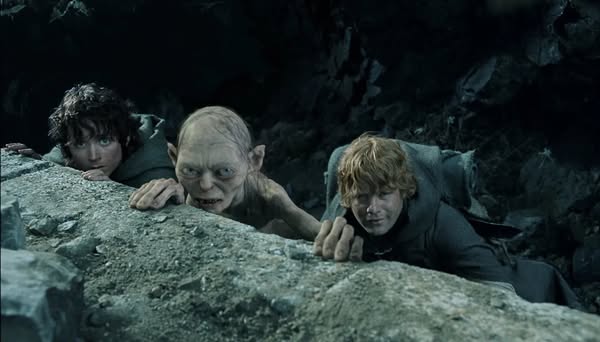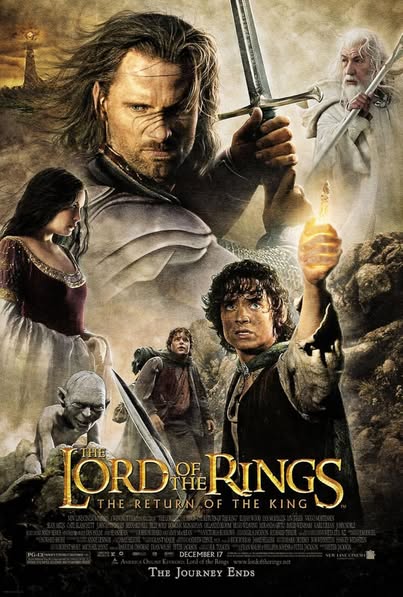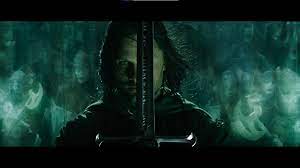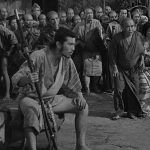The Lord of the Rings: The Return of the King (2003)

The Lord of the Rings: The Return of the King (2003), directed by Peter Jackson, is the epic conclusion to the groundbreaking film trilogy adapted from J.R.R. Tolkien’s literary masterpiece. This installment not only delivers breathtaking visuals and grand battle sequences but also culminates the rich narrative threads woven throughout the previous films, providing a satisfying and emotional resolution to the saga of Middle-earth.
The film follows the desperate struggle against the dark lord Sauron, whose power grows as the One Ring approaches its final destination. As Frodo Baggins, played by Elijah Wood, and his loyal companion Samwise Gamgee, portrayed by Sean Astin, make their perilous journey toward Mount Doom, the stakes become increasingly high. Their quest embodies themes of friendship, sacrifice, and the burden of responsibility, illustrating the personal struggles that accompany the larger battle for Middle-earth.

Simultaneously, the remaining members of the Fellowship, including Aragorn (Viggo Mortensen), Legolas (Orlando Bloom), and Gimli (John Rhys-Davies), rally the forces of good to confront Sauron’s armies. The climactic battles, particularly the Siege of Minas Tirith and the final confrontation at the Black Gate, are visually stunning and emotionally charged, showcasing Jackson’s mastery of epic storytelling. The film’s pacing expertly balances action with poignant moments, ensuring that character development remains at the forefront.

One of the film’s standout features is its ability to evoke deep emotional resonance. The relationships among the characters are explored in greater depth, particularly Aragorn’s growth into a true leader and king. His struggle with identity and destiny adds layers to the narrative, while the bond between Frodo and Sam serves as a testament to loyalty and courage in the face of overwhelming odds.
The film also features remarkable performances, with standout roles from Ian McKellen as Gandalf and Andy Serkis as Gollum, whose duality adds complexity to the story. The emotional weight of the film is further enhanced by Howard Shore’s haunting score, which weaves together themes and motifs that have become iconic in their own right.

The Return of the King culminates not only in the defeat of Sauron but also in the poignant farewell of the Fellowship, highlighting themes of loss and the passage of time. The film’s extended ending allows for reflection on the journey and the characters’ growth, making it a fitting conclusion to an epic saga.
In summary, The Lord of the Rings: The Return of the King is a monumental achievement in filmmaking that masterfully concludes an iconic trilogy. With its powerful storytelling, stunning visuals, and deep emotional resonance, it stands as a testament to the enduring power of friendship, sacrifice, and the battle between good and evil. The film is a fitting tribute to Tolkien’s legacy, leaving audiences with a sense of wonder and closure.











